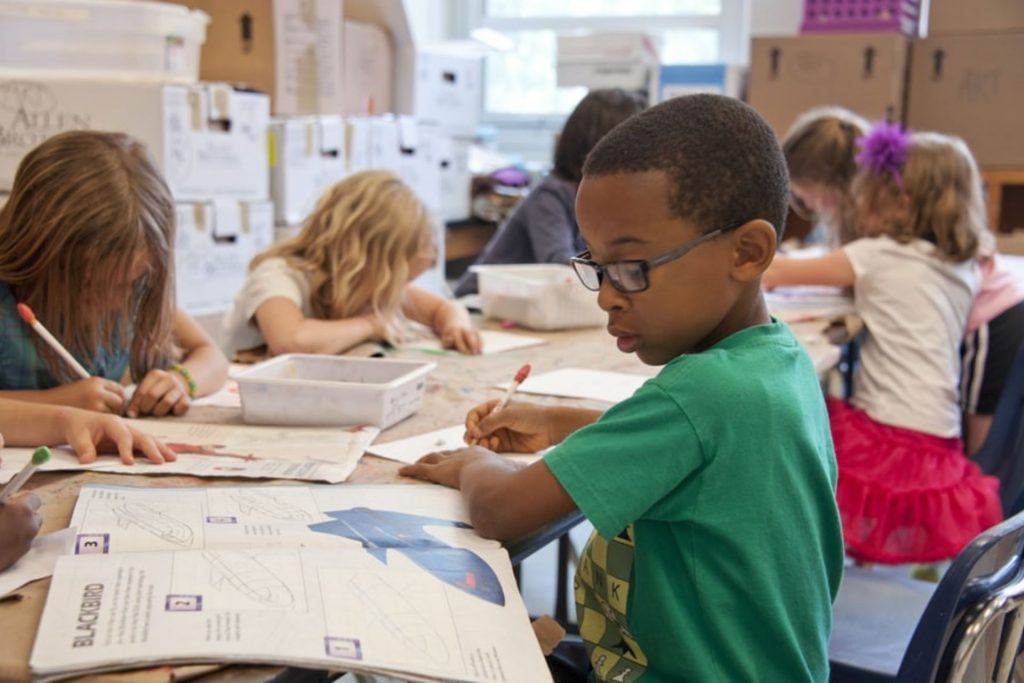
We are a reader-supported education publication. When you buy through links on our site, we may earn an affiliate commission to help us keep providing content.
Should you send your child to private school? It’s a question many parents are asking themselves in the wake of the pandemic. The K-12 education system looks completely different than it did just three years ago and some families feel they’re ready to make the switch. What they don’t know is that private school costs a whopping $12,350 per year on average. Prices vary widely depending on a variety of factors, so you could pay even more.
That said, is private school worth the expense? Some may say “yes, of course,” while others might give a resounding “no.” Ultimately, the decision comes down to your budget, values, and what you believe is best for your child and family. Considering what private school has to offer and how it might differ from public schools will help you make a more informed choice.
Bigger Emphasis on Academics
One of the first things you’ll notice when looking into private schools is their emphasis on academics. Often, teachers and counselors at these schools will push students harder and further in their education than their public school counterparts. This is great news for parents who want their children to focus on schoolwork, earn good grades, and get into university. However, it may also pit kids against one another as they try to place higher and outdo their peers.

Better Technologies
Private schools also tend to have higher quality technologies than public schools. That’s because they receive private funding from parents, alumni, and donors. Pricey tuition also helps them rake in more revenue to reinvest in their classrooms. In a private school, you may find virtual reality hardware and laptops for every student. Meanwhile, many public schools are still struggling to get Smartboards and desktop computers for each room.
Fewer Extracurricular Activities
Of course, a bigger emphasis on learning also means fewer extracurricular activities at many private schools. While most public schools have everything from football to wrestling, small private academies might only offer one or two sports. Even then, they may play very few games so, if your kid is a sports all-star, you might want to choose public over private school. It just depends on your child’s interests and what each institution has to offer.
Different Rules for Teachers
Because private schools receive private — as opposed to federal — funding, they can make their own rules and requirements for hiring teachers. That means they can easily add uncertified and underqualified instructors to their staff. Meanwhile, public schools may only hire teachers with a college degree, teaching hours, certification, and a plan to earn their master’s. In some cases, educators must earn their second degree within a specific time frame to remain on staff.
Different Masking Requirements
By law, most states can only regulate mask-wearing in public schools. That means the vast majority of private schools can decide whether to enforce mask-wearing or ban mask mandates on campus. The contentious topic is making some parents think twice about where they send the kids to school. Whether you’re all for masks or would rather do without them, it’s important to discuss your concerns with whichever private schools you’re considering. That way you know whether your child must wear or mask or if they have a choice.

More Hybrid Learning Opportunities
Public school enrollment declined noticeably in fall 2020, while private school enrollment increased substantially. Why? Private schools generally offer more hybrid learning opportunities than their public counterparts. Whether you want your kids to learn in person or at home, most private schools will find a way to make it happen. Of course, emerging variants may alter schools’ options regarding where and how students learn. Talk to potential schools about what might happen in various hypothetical scenarios to determine whether your child will have the same opportunities year-round.
Smaller Class Sizes
Tuition prices discourage many parents from enrolling their kids in private school, which is why most classes are relatively small. It’s common to see 10 to 20 kids in a class — or even a whole grade — while public schools can easily have classes with 30 students or more. If you know your child needs more one-on-one instruction and attention, private school might be the best choice. Smaller class sizes can also provide a more intimate atmosphere where everyone knows each other and can support one another academically.
Making a Decision Together
More than 40% of parents are likely to prefer a private education for their children after the pandemic. Considering all the benefits that come with it, private school may be well worth the extra cost. However, each family must make the best choice for them based on budget, values, and interest. Ask your kiddo for input and make the decision together. That way they make the transition on good terms and are ready to hit the ground running on the first day of class.









